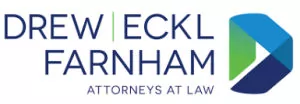It is well-established that injuries sustained while an employee is going to or leaving work are not compensable under the Workers' Compensation Act, yet the courts have long recognized an exception to this general principle known as the “ingress/egress rule,” which extends the “period of employment” to include a reasonable time for ingress to or egress from the place of work, such that injuries which occur on the employer's premise during such reasonable time may be compensable. See O.C.G.A.§ 34-9-1(4). In a practical manner, questions surrounding the application of the ingress/egress rule commonly arise when an employee is not “on the clock” but is nevertheless injured entering the employer's premise prior to beginning work, or alternatively, exiting the employer's premise following the conclusion of his or her work shift. While the application of the ingress/egress rule is not fixed and depends on the particular facts of each case, the courts have provided some guidance regarding potential “factors” to consider when determining compensability in these scenarios.
In determining the compensability of an accident which occurs while an employee is entering the employer's premise to begin work, or alternatively exiting the employer's premise to leave work following the completion of a shift, legal precedent shows the ingress/egress rule encompasses accidents which occur on the employer's premise during the “reasonable time” necessary or required for the employee to begin or leave work at the proper time. In determining how much time constitutes a “reasonable” period for ingress or egress, during which an employee may still be considered in the course of employment, the courts provide guidance through a two-prong analysis. First, the Court of Appeals considers the length of time between the accident and the time work was scheduled to begin or end. See Champion v. Pilgrim's Pride Corp. of Delaware, Inc., 286 Ga. App. 334 (2007). Second, while still taking into account the length of time between an accident and when an employee's work was scheduled to begin or end, the Court of Appeals has held that, while on the employer's premises, the period of employment may also include “the reasonable time which is necessary or required as a condition of employment to get into position and begin [or end] his or her job duties at the proper time.” See United States Casualty Co. v. Russell, 98 Ga. App. 181 (1958).
To provide some examples, the courts have consistently denied compensability when an employee is entering or exiting an employer's premise one or more hours from the start or end of a scheduled work shift, especially where there is no evidence the employee's presence on the employer's premise at the time of the accident was for any work-related reason incidental to his or her employment. See e.g., Huff v. Meritage Hospitality Group, Inc., 2022CV366812, Ga. Super. Ct. (June 29, 2022)(holding the ingress/egress rule does not apply where the restaurant worker had completed her shift, remained in the restaurant lobby to wait for transportation free of any employer control, and was then struck by a vehicle in the parking lot of the employer's premise while leaving work approximately 56 minutes later); Champion v. Pilgrim's Pride Corp. of Delaware, Inc., 286 Ga. App. 334 (2007)(the ingress/egress rule would not apply when the accident on the employer's premise occurred 78 minutes before the employee was scheduled to begin work, and it was undisputed the employee only needed 5 to 10 minutes to prepare for the beginning of her shift). In contrast, the courts have held 10 minutes or 20 minutes might be reasonable period of ingress or egress, depending on the activities and travel distances required of an employee to begin or end work at the proper time. See e.g., General Acc. Fire & Life Assur. Corp. v. Worley, 86 Ga. App. 794 (1954)(holding an accident which occurred when employee entered employer's premise 20 minutes prior to the beginning of his shift was in the scope of employment, as the employer made provisions to do exactly what employee was doing at the time of the accident, to include entering the building ahead of time to change into work clothes, furnishing a dressing room, and then proceeding to work station at the designated time); Employers Ins. Co. of Alabama v. Bass, 81 Ga. App. 306 (1950)(affirming an award where the employee was carrying his tools to his designated work station approximately 10 minutes in advance of the time it was necessary for him to begin working upon his arrival onto the premises).
In sum, whether an employee is clocked-in or clocked-out of work at the of an accident may be relevant to a particular case, yet it is not in-and-of-itself a deciding factor in determining the compensability of an accident which occurs on the employer's premise before or after the employee was scheduled to begin or end work. Instead, the ingress/egress rule essentially involves a determination as to the length of timebetween the accident and the time which the employee's shift was scheduled to begin or end, while also considering if the employee's presence on the employer's premise at the time of the accident was related the performance of any employment-related activity necessary or required to begin or end work at the proper time.
The content of this article is intended to provide a general guide to the subject matter. Specialist advice should be sought about your specific circumstances.
We operate a free-to-view policy, asking only that you register in order to read all of our content. Please login or register to view the rest of this article.


